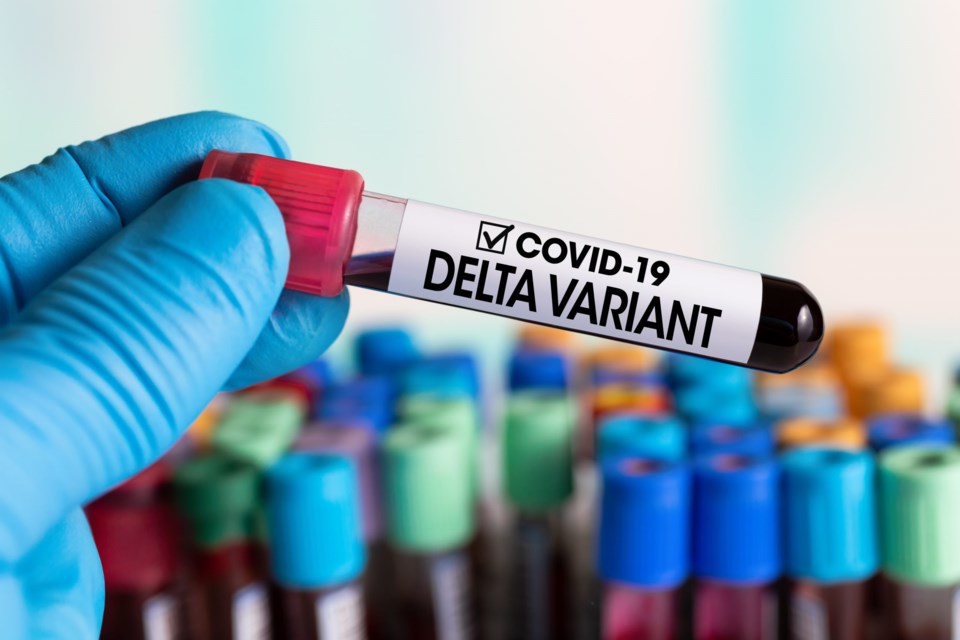It’s making headlines all over the news: “What the Delta variant could mean for Covid-19 in the United States,” “COVID-19 Delta Variant ‘Accelerating’ In North Texas And Across The Nation,” “CDC: Delta variant expected to be dominant in US.”
But in the words of Bo Burnham from his newest special Inside, “Um, what the [heck] is going on?”
To break it down, the Delta variant of the COVID-19 virus was designated by the Centers for Disease Control and Prevention as a “variant of concern” last week, according to the Center for Infectious Disease Research and Policy. Essentially, this means that the CDC officially recognizes the Delta variant as one that “may carry a risk of more severe illness and transmissibility.”
The shift to the CDC listing the Delta variant as one of concern comes as the variant now makes up at least 10% of all COVID-19 cases in the U.S. — a sharp jump from May 22, when the variant only made up 2.7% of cases, according to the CIDRP.
So while scientists struggle to figure out what the heck is going on, here are five things to know about the COVID-19 Delta variant in the meantime.
It was first found in India
There has been a lot of news coverage about many COVID-19 variants, so to clear things up — the Delta variant is the same COVID-19 viral variant that wreaked havoc on India. Specifically, the variant is known by scientists as B.1.617.2.
The earliest documented case of COVID-19 caused by this variant was found in October 2020 in the Indian state of Maharashtra, according to Deutsche Welle. And as you’ve probably heard, it spread like crazy throughout the country, causing cases and deaths to soar.
But it is still too early to tell whether the Delta variant was solely responsible for the flood of COVID-19 cases and deaths in India this year. Since COVID-19 affected India worse than other countries, the new strain probably didn’t help.
It’s (probably) more transmissible
On that note, in April 2021, the Delta variant became the most commonly spread variant among new COVID-19 cases in India, according to Medical News Today. So it’s no surprise that the Delta variant is probably more transmissible than the OG COVID-19 virus and is even 60% more transmissible than the B.1.1.7 Alpha variant, which was first identified in the United Kingdom.
And just last week, the World Health Organization announced that the Delta strain has managed to reach over 80 countries, CNBC reported.
As far as why this variant seems to be more transmissible — it’s too early to tell. But, according to WebMD, research thus far shows the variant’s protein may make it easier for the virus to enter and infect human cells, or it may blend in better with human cells, making it less detectable to the immune system.
It’s (probably) more likely to cause serious illness
Again, research on the difference between the Delta variant and others is scarce and only in its early stages. However, some research has found that the Delta variant is more likely to cause severe illness than the other variants.
According to WebMD, research has shown that people infected with the Delta variant are more likely to end up in the hospital. And it may even have double the risk of hospitalization compared to the Alpha variant. In China, doctors have found that patients sick with the Delta variant are sicker, and their conditions go downhill faster than the COVID-19 patients they treated early on in the pandemic.
On top of that, early research has shown that the Delta variant may affect younger individuals more than the other strains — a sharp difference from the COVID-19 strains circulating at the beginning of the pandemic, which hardly affected younger folks. Studies from the U.K. found that children and adults under 50 were 2.5 times more likely to get infected with the Delta variant, according to WebMD.
The First North Texas Delta cases were reported in May
While news about the Delta variant is surging right now, the University of Texas Southwestern Medical Center reported the first two cases of COVID-19 caused by the Delta variant on May 20 in North Texas.
Scientists at the medical center pinpointed the viral variants for all of the COVID-19-positive samples it received over the past few months by using sequencing technologies and PCR testing.
However, the testing found that, at the time, the Alpha variant was the most dominant in North Texas, making up 70% of COVID-19 cases, followed by the Delta variant, which made up 6% of cases. The other COVID-19 variants found — Brazil, California and New York — made up 6%, 3% and 3% of cases.
The vaccine (probably) does protect against it
Although not much, there is evidence that the existing COVID-19 vaccines do protect you against the Delta variant. BioNTech and the University of Texas Medical Branch researchers reported last week that they found evidence the Pfizer/BioNTech vaccine protects against infection with the Delta variant and others, according to a June 10 CNN report.
U.K. researchers found, according to CNN, that most people who get two doses of the Pfizer/BioNTech vaccine are still protected against the new variant, but “the antibodies appear to be significantly reduced."
And data from the U.K. Parliament also showed that the AstraZeneca (a COVID-19 vaccine that hasn’t been authorized in the U.S.) and Moderna vaccines are effective against the Delta variant after both vaccine doses are given.




